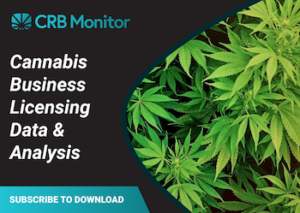A lawsuit challenging the criteria for Maryland’s social equity standard failed to block the state’s upcoming licensing lottery in federal court Feb. 27. The lottery, which will select 179 licensees out of 1,708 applicants, is expected to take place in March, but no exact date has been announced.
Justyna Jensen sued the state on Jan. 26, alleging that the requirement for lottery applicants violated the U.S. Constitution’s dormant commerce clause. Specifically, she challenged the requirement to have attended a four-year institution of higher education in Maryland, for at least two years, where at least 40% of the individuals who attend are eligible for a Pell Grant.
Pell grants are generally awarded to households that have annual incomes of less than $30,000. Although Jensen did attend a school where over 40% of the students qualified for a Pell Grant, that school was not located in Maryland.
The application period closed on Dec. 12, 2023, with the expectation that those applications would be vetted and then drawn through a lottery in early 2024. Jensen filed her suit at the end of January.
The timing of her filing undercut her arguments, according to U.S. District Judge Brendan Hurson, who denied her request to halt the lottery.
“While Plaintiff waited to file this suit, Defendants were processing applications, and individuals were applying for Maryland retail cannabis licenses. Defendants have dedicated hundreds of thousands of dollars and hundreds of staff hours to processing nearly 2,000 applications from individuals hoping for a license,” wrote Hurson, in a 26-page opinion. “Defendants’ expenditure of time and resources contrasted with Plaintiff’s unhurried filing schedule and complete lack of significant financial or other resources expended on the application strongly suggest that the balance of equities weighs against the granting of the requested injunction.”
Judge doubts commerce clause applies to state residency rules
Beyond the timing of the lawsuit and the consideration of public harm, Hurson wrote that he was not persuaded by the claim that Maryland’s social equity requirement violates the dormant commerce clause. He noted that the question of whether or not the clause applies to cannabis has had mixed results in federal court.
The First Circuit Court of Appeals found that the dormant commerce clause does apply, but only in the sense that investment in cannabis companies from across state lines is permitted. Aside from that, Hurson said he sides with the courts across the country that have rejected the idea that social equity or residency requirements in cannabis licensing violated the dormant commerce clause.
“Put simply, it defies common sense to find that the dormant Commerce Clause, drawn from Congress’ power to regulate interstate commerce, prevents the states from passing laws which inhibit a market which Congress has already declared prohibited.”
Notably, many of the examples that Hurson cites are cases that also involved Jensen’s attorney, Jeffrey Jensen, who was identified as her husband in a 2019 California retail license application.
Jeffrey Jensen successfully halted New York’s roll-out of conditional adult-use retail dispensary licenses because it was reserved for applicants with a cannabis-related conviction in New York. Jensen represented a man from Michigan whose prior conviction was from his home state. State regulators ultimately settled the lawsuit, agreeing to grant the applicant a retail license in the Finger Lakes region of the state.
Jeffrey Jensen sued in Washington state and recently failed to obtain a restraining order against the state’s issuance of social equity licenses.
He also represented lawsuits in Los Angeles and Sacramento, Calif., challenging those municipalities’ social equity licensing preferences. Both of those cases are awaiting a ruling from the Ninth Circuit Court of Appeals.
Maryland opened its adult-use market on July 1 with 96 newly-hybrid medical dispensaries and quickly racked up $330 million in sales in the last half of 2023. The state opened its first application round for new cannabis operators on Nov. 13. That window closed about a month later, after drawing 1,708 applications. From those 179 will be chosen through a lottery process.
This round of licenses will be exclusively open to social equity candidates, who must own at least 65% of the company they represent.
According to the Cannabis Reform Act, a social equity applicant must own or control 65% of the company. They are defined as someone who has either:
- Lived in a disproportionately impacted area for at least the five of past 10 years
- Attended a public school in a disproportionately impacted area for at least five years
- For at least two years, attended a four-year institution of higher education in Maryland where at least 40% of the individuals who attend are eligible for a Pell Grant
Neither Jeffrey Jensen nor a spokesperson from the Maryland Cannabis Administration responded to requests for comment.













